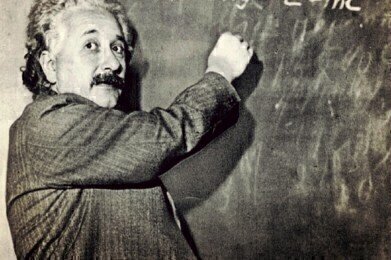Laboratory Products
Might Einstein Be Proven Wrong?
Dec 04 2016
Ubiquitously respected by university professors and high school students alike, there’s no denying that Albert Einstein is one of history’s most illustrious thinkers. But now, a team of scientists is attempting to prove that just because the German-born theoretical physicist enjoys divine status, his theories aren’t above scepticism. In a move that’s stunned the scientific world, an Imperial College London based team is arguing that the speed of light is not necessarily a constant, as claimed by Einstein back in 1905.
Did the Big Bang switch the speed of light into top gear?
Instead, lead scientist Professor Joao Magueijo and his team are challenging the idea that the speed of light is defined by a numerical value of 299,792,458 metres per second, and maintaining that it may have been accelerated immediately after the Big Bang. If the scientists are right the claims could completely shake up views of how the universe was formed, most notably the Big Bang theory.
The research was published in the journal Physical Review D, with Magueijo commenting, "The theory, which we first proposed in the late 1990s, has now reached a maturity point – it has produced a testable prediction. If observations in the near future do find this number to be accurate, it could lead to a modification of Einstein's theory of gravity.”
Using CMB to cement Variable Speed of Light (VSL) theories
In what’s been labelled as one of the most significant experiments of the century, scientists are putting the theory to the test by studying the cosmic microwave background (CMB). CMB refers to the “afterglow” of radiation that followed the Big Bang, and offers scientists an impression of the early universe. Cosmic structures like galaxies were all formed as a result of minute density fluctuations which are now stamped in the CMB. By measuring these fluctuations scientists have produced a "spectral index" which could prove that the speed of light surpassed its fundamental 299,792,458 metres per second value following the Big Bang.
“The idea that the speed of light could be variable was radical when first proposed, but with a numerical prediction, it becomes something physicists can actually test. If true, it would mean that the laws of nature were not always the same as they are today,” explains Magueijo.
While some scientists are dedicated to unravelling cosmic mysteries, others are making waves in the medical sphere. ‘Thermal Cameras Help to Reduce the Invasiveness of Cochlear Implant Surgery’ explores the latest FLIR Systems technology being used to restore hearing, without the need for elaborate and highly invasive surgery.
Digital Edition
Lab Asia 31.2 April 2024
April 2024
In This Edition Chromatography Articles - Approaches to troubleshooting an SPE method for the analysis of oligonucleotides (pt i) - High-precision liquid flow processes demand full fluidic c...
View all digital editions
Events
Apr 22 2024 Marrakech, Morroco
Making Pharmaceuticals Exhibition & Conference
Apr 23 2024 Coventry, UK
Apr 23 2024 Kintex, South Korea
Apr 23 2024 Seoul, South Korea
Apr 24 2024 Jakarta, Indonesia

.jpg)






.jpg)









